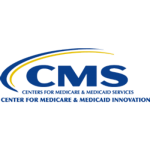Payers offered several suggestions regarding how to deliver more federal funds for these entities and called on Congress to ensure stable health insurance markets.
America’s Health Insurance Plans (AHIP) and Blue Cross Blue Shield Association (BCBSA) have called on Congress to ensure access to coronavirus care and healthcare coverage through federal funds.
More specifically, the payer organizations recommended that Congress protect at-risk populations, increase Medicaid support, extend suspended regulations, and stabilize health insurance markets.
“The steps Congress has taken have been essential to providing Americans with that support, and we thank you for your continued leadership in addressing these unprecedented times,” the letter read.
“We know that Americans are anxious to maintain their health coverage, keep that coverage stable, ensure access to widespread and reliable testing, and ensure the resources needed to overcome COVID-19. That is why we recommend the following legislative actions – to help Americans and our communities, and to keep our nation strong.”
Want to publish your own articles on DistilINFO Publications?
Send us an email, we will get in touch with you.
The payer organizations had three recommendations regarding how Congress could support employers as they struggle to extend healthcare coverage to their employees during the crisis.
According to the organizations, Congress first should offer temporary subsidies, actual funds, or expand existing programs. Second, legislators should fully—though temporarily—subsidize COBRA premiums for those who lose their employer-sponsored health plans.
Third, individual health insurance market premiums should be less costly. There are two ways that Congress could reduce individual health insurance market premiums:
- Adjust premium tax credits by age
- Enhance subsidies for those at 150 percent of the federal poverty level up to 600 percent of the federal poverty level while also diminishing the contribution percentage
The coronavirus test should be broadly available, regardless of healthcare coverage status, the payer organizations argued. More federal funding should go into increasing the amount of testing.
Medicare Advantage plans have been at the forefront of coronavirus efforts due to the vulnerabilities of their populations.
As a result, Medicare Advantage plans should receive greater support from the government, the payer organizations said. That support should include counting audio-only telehealth services in risk adjustment calculations and evaluating medical loss ratios based on a three-year rolling average.
Additionally, risk scores should count chronic disease diagnoses from both 2018 and 2019 toward 2021 to keep risk scores stable. Congress should also change the Coronavirus Aid, Relief, and Economic Security (CARES) Act to reduce the impact of new coronavirus-related therapies that may come onto the market after plans submitted their 2021 bids.
In addition to Medicare Advantage plans, Medicaid programs have taken on the brunt of the coronavirus response as well. Eighteen of the 32 Medicaid directors who participated in a recent Kaiser Family Foundation survey said that their programs would surpass the pre-coronavirus projected 2020 spending growth.
Congress can support Medicaid programs by bumping the federal medical assistance percentage (FMAP) higher and tie FMAP increases to enrollment increases. The federal government also needs to be more rigorous about putting checks on states’ actuarial data to make sure that data is accurate.
While a coronavirus vaccine has yet to be released, Congress needs to be prepared to ensure that the price for such a drug will be reasonable and to distribute the vaccine fairly, the payer organizations said.
Policymakers should also postpone implementing certain regulations including the Medicaid Fiscal Accountability Regulation (MFAR) and the interoperability rule. The deadline for the interoperability rule already has been pushed back to July 1, 2021, due to the coronavirus.
“We strongly support ensuring people have real-time, personalized access to cost-sharing information—including getting estimates of cost-sharing liability for health care items and services,” the organizations qualified.
“However, during this time of crisis, we are deeply concerned that legislation or regulation being considered would undermine competition, reduce affordability, push prices higher, and complicate the health care experience, in addition to diverting essential resources away from COVID-19 patients and their care.”
Finally, should Congress choose not to implement any of the policies AHIP and BCBSA endorsed, the organizations urged policymakers to create more targeted regulations to help keep each health insurance market stable.
Congress’s most recent movement regarding healthcare coverage during the pandemic took the form of a bill passed in the House that would expand the Affordable Care Act. The bill is considered dead on arrival in the Senate as the parties continue to spar over the Affordable Care Act’s legal future.
Source: Healthpayer Intelligence







